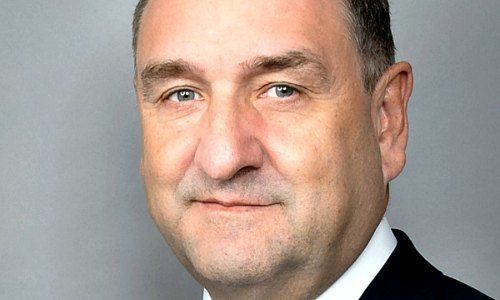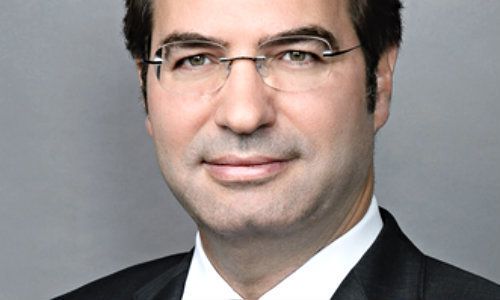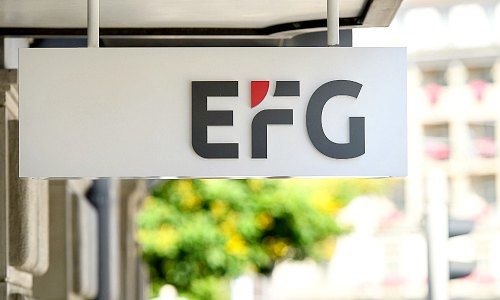EFG Asks «What Next» After BSI Drama
More than other Swiss private banks of its size, EFG International is facing its «what’s-next» moment, following a year of scandal and surprises. finews.asia pinpoints the urgency for the Zurich-based firm.
Zurich-based EFG presented a clean bill of health to the world this week: it has stanched the bleeding of assets from acquiring 1MDB-infected Banca della Svizzera Italiana, or BSI, and even returned to modest asset growth.
It buried an Italian tax scandal without shutting branches this week. The last mile of its BSI deal – a keenly-awaited and dicey move onto a common information technology platform – should happen next month. With that, Greek-owned EFG will have won most of the 240 million Swiss francs it aims to save by combining forces with its smaller rival.

With Chief Executive Joachim «Joe» Straehle (pictured above) on his way out at year-end and EFG ready to get down to brass tacks after the BSI saga, what’s next for the Swiss private bank?
It’s the Growth, Stupid
The same imperative for a host of mid-sized Swiss firms – Mirabaud, Vontobel, Notenstein La Roche, Lombard Odier, Maerki Baumann, J. Safra Sarasin – applies to EFG as well: the banks must grow or die.
Even large enough firms like Julius Baer must adhere to the maxim, or be smothered under an expensive and rigid fixed cost base. For EFG, which operates a vigorous advisor churn based on their profitability, this is particularly urgent.
EFG has done better than most at diversifying its asset base in lucrative hot spots for the rich like Asia and Latin America. But BSI didn’t give it the lift it hoped for: the Ticino bank’s Asian franchise was decimated by the 1MDB scandal, rendering it effectively useless.
Surprisingly Swiss
Surprisingly given its ownership by the wealthy Greek shipping family Latsis and multicultural past management, EFG remains a staunchly Swiss bank: 54 percent of its assets come from Switzerland or the continent. Just 15 percent and 12 percent harken from Asia and Latin America, respectively.
That has to change: EFG in Asia is still run by Albert Chiu, who has been with the bank for 17 years and built up the bank up in Singapore and Hong Kong. To vault itself into the next league, EFG would do well to gently move Chiu upstairs and instead bank on a big industry hitter whose main skill is to attract talent, much like Julius Baer has done with ex-Credit Suisse headliner Jimmy Lee.
The same is true in the Americas: EFG has a flourishing presence in Miami and locations from Panama to Chile. The bank has already moved into a more aggressive growth mode in Latin America, hiring Citibank’s Marcelo Coscarelli last year.
Local Rainmakers
Coscarelli worked with the rich and ultra-rich for the last five years, but also has American experience: he was operating chief at Itau in Miami prior to the American bank. The hope is that he is the man to bolster EFG’s 17.1 billion Swiss francs in Latin American assets.
Why are the local rainmakers and talent recruiters key? Because neither of EFG's two top executives – chairman John Williamson and new Chief Executive Giorgio Pradelli (pictured below) – made their mark as client-facing bankers.

Williamson worked his way up at Coutts to operating chief, while Pradelli made his name as a financier and restructurer at Greece's EFG. In short, neither of them has the influence in private banker circles to pull in the new recruits that EFG’s talent grinder relies on to deliver profits.
Strange Bedfellows
Observers also note that EFG’s two major shareholders, the Latsis family and BTG Pactual, have settled into an uneasy alliance to control nearly three-quarters of the bank. The Brazilian investment bank is only in because of the BSI cash-and-stock deal. Meanwhile the Latsis family was close to selling to Julius Baer two years ago, a luckless deal with effectively cost Williamson his job as CEO.
With EFG’s synergy play from BSI coming to an end, investors will be watching CEO Pradelli closely. For a bank with 147.5 billion francs in assets, 3,400 staff is ambitious. Pradelli has to show he can kickstart the bank’s next phase of growth, and not just keep EFG alive until the next takeover bid.



























